Today we are excited to announce the 2010 K-12 Online Conference call for proposals, strands and hashtag. The theme for our fifth annual K12 Online Conference” is “Cultivating the Future.” Our free, online conference is for educators around the world interested in the use of web 2.0 tools in classrooms and professional practice. This year’s conference schedule returns to October, when we held the conference in 2006, 2007, and 2008. K-12 Online 2010 is scheduled for October 18-22 and October 25-29 of 2010, and will include a pre-conference keynote during the week of October 11. Our conference is mostly asynchronous, but will again include several live events. Over 140 archived presentations from 2006, 2007, 2008, and 2009 remain available online.
The deadline for proposal submission is August 23, 2010. (Note this has been extended from Aug 13th!) Selected presentations will be announced on Sept 1st. PLEASE CLICK HERE TO SUBMIT YOUR PROPOSAL via Google Forms.
OVERVIEW: K12 Online 2010 will feature four “conference strands,” two each week, and include “LAN Party” live events on the Saturday following each week of the regular conference in partnership with EdTechTalk. Two presentations will be published in each strand each day, Monday through Friday, so four new presentations will be available each day over the course of the two weeks. Including the pre-conference keynote, a total of 41 presentations will be published. Each twenty minute (or less) presentation will be shared online in a downloadable and embeddable formats, and released simultaneously via the conference blog (www.k12onlineconference.org,) the conference Twitter account, and the conference audio and video podcast channels. All presentations will be archived online for posterity. If you are planning to submit a proposal, please review archived presentations from past years to determine what you might offer that is new and builds on previous work.
Our 2010 conference theme “Cultivating the Future,” is based on two ideas: A quotation from William Gibson and the metaphor of gardening and cultivation to grow relationships, networks, ways of learning, and develop ideas. William Gibson is credited with the quotation, “The future is here. It’s just not widely distributed yet.”* As William observed, signs of the future are visible in many places today. It is our desire, as organizers of the K-12 Online Conference, to showcase and amplify these examples of forward-thinking pedagogy and digitally-powered learning. In Josh Little’s article, “5 Tips for Knowledge Gardeners: How to Grow a Collaborative Learning Community,” he articulates many parallels between the work of gardeners and those seeking to cultivate vibrant learning communities. In both cases, leaders need to cultivate fertile soil. Josh notes, “Expert gardeners know that a garden is only as good as the soil in which it is planted. Throwing high quality seeds on a rocky seedbed won’t yield the results they want. The same is true for creating the right collaborative learning environment for your organization. So before you start, ask yourself what would get in the way of open sharing within your organization.” He identifies three potential obstacles for sharing and growth:
- Culture “ will people feel comfortable sharing?
- Tools “ do people have access to computers and the internet and know how to use them?
- Time “ is it acceptable that people take the time necessary to develop themselves?
As you develop a proposal for the 2010 K-12 Online Conference, please keep these ideas in mind and weave these themes into your proposal. Also, please utilize the hashtag “#k12online10” as you tweet, blog, and share links about the conference this year!
FOUR STRANDS:
Week 1
Strand A: Student Voices
As educators we should NOT perceive ourselves as teachers of content, but rather teachers of kids.** Students should be both the focus and the purpose for which we teach in the classroom. Our student voices strand seeks to amplify the voices of exemplary students who are using digital tools as leaders in their school communities as well as the larger world. As educators and leaders, we need to listen to student voices and perspectives more as we make decisions about our schools and classrooms which affect students. Student presenters in our student voices strand must be sponsored by an educator, and presentation permission forms will need to be signed by a parent for each participating student. Individual as well as teams of student participants are welcome. Students can focus on specific projects in which they have been involved using technology as a tool, outstanding classroom lessons which have had a particularly positive impact on their learning as well as their classmates, and/or recommendations for educators seeking to use digital tools effectively in the classroom. A focus on project-based learning and service learning is welcome, but not required. Wesley Fryer is the strand convener.
Strand B: Leading the Change
Innovative approaches to teaching and learning using web 2.0 tools are often utilized by a limited number of “early adopter” teachers in our schools. This strand seeks to amplify ways educators in a variety of contexts are serving as constructive catalysts for broad-based pedagogic change using Web 2.0 technologies as well as student-centered, project-based approaches to learning. Presentations in this strand will both showcase successful strategies as well as amplify critical issues which must be addressed for innovative learning methods to be adopted by teachers, librarians, and administrators on a more widespread basis. These issues may include (but are not limited to) issues of copyright, fair use and intellectual property, Internet content filtering, student privacy and safety issues, administrator expectations for teacher utilization of Web 2.0 tools, pilot initiatives utilizing key Web 2.0 technologies in different content areas, and innovative ways students and teachers are providing just-in-time support as well as formal learning opportunities for each other focusing on Web 2.0 tools. Successful approaches for both large and small schools, in rural as well as urban settings, will be included. This strand will explore and amplify a menu of practical ideas for educators in diverse contexts who want to continue amplifying possibilities in our schools. Jose Rodriguez is the strand convener.
Week 2
Strand A: Week in the Classroom
Leveraging the power of free online tools in an open, collaborative and transparent atmosphere characterizes teaching and learning in the 21st century. Teachers and students are contributing to the growing global knowledge commons by publishing their work online. By sharing all stages of their learning students are beginning to appreciate the value of life long learning that inheres in work that is in “perpetual beta.” This strand will explore how teachers and students are tangibly bridging divides between instructors, learners, classrooms, content, and experts outside the traditional classroom. Presentations will also explore the practical pedagogical uses of online social tools (Web 2.0) giving concrete examples of how teachers are using the tools in their classes. Amanda Marrinan is the strand convener.
Strand B: Kicking It Up a Notch
You’ve been using blogs, wikis and other technologies for awhile but perhaps haven’t seen them transform your classroom and the learning environment for your students in the ways you think they can. This strand amplifies ways new technologies can be used to transform classroom and personal learning. Rather than merely replicating traditional, analog-based learning tasks, how can digital technologies permit teacher-leaders to “infomate” learning to add greater interactivity, personal differentiation, and multi-modal exploration of curriculum topics? Fresh new approaches to using Web 2.0 tools for learning and authentic assessment will be highlighted. Presentations will explore innovative ways Web 2.0 tools can be blended together to help students create, collaborate, and share the knowledge safely on the global stage of the Internet. Maybe it’s time to share your insights and experiences with your teaching community. Join these sessions to gain insights on “bridging the divide” for learners in your classroom and/or your professional practice. Maria Knee is the strand convener.
REQUIREMENTS
- Presentations must be a single media file of twenty minutes or less in length. (Only keynote sessions can exceed 20 minutes.)
- Presentations must be submitted in a downloadable and convertible file format (mp3, mov, WMV, FLV, m4a, or m4v.) Presenters wanting to use an alternative format should contact their respective strand convener in advance.
- Presentations are due no later than (NLT) two weeks prior to the week the relevant strand begins.
- Presentations must be submitted only one time and on time. Early submissions are welcomed! Repeat submissions (with changes and additional edits) will not be accepted. Presenters should proof carefully before submitting!
- All presentations will be shared under a Creative Commons Attribution-NonCommercial-ShareAlike 3.0 Unported license.
Optional presentation elements:
- Prior to September 30th, presenters are invited to submit a “teaser” (maximum video or audio file length: 3 minutes) about their presentation. This can be any type of online artifact and does not have to be downloadable. Examples may include videos, animations, posters, audio interviews, etc.
- In addition to marketing the presentation, teasers can be designed to encourage and solicit community input related to the presentation topic in advance of the presentation submission deadline.
- View teaser examples from 2007 at http://k12online07.wikispaces.com/Teasers
- Supplementary materials supporting presentations are welcomed. These can be wikis with supporting material links, linked examples of student projects, school district exemplary initiatives, social bookmarking collections, and/or other related content.
- Follow-up projects and/or live interaction opportunities for conference presentations which further amplify the possibilities of the presentation topic may be included. (This can include sharing and building of content prior to, during and after the conference.)
EVALUATION AND SELECTION
As you draft your proposal, you may wish to consider the presentation topics listed below which were suggested in the comments on the K-12 Online Conference Blog:
– Special needs education
– Creative Commons, Intellectual Property, Copyright and Fair Use
– Student voices
– Community involvement
– Games in education
– Specific ideas, tips, mini lessons centered on pedagogical use of web 2.0 tools
– Overcoming institutional inertia and resistance
– Aligning Web 2.0 and other projects to national standards
– Getting your message across
– How web 2.0 can assist those with disabilities
– ePortfolios
– Classroom 2.0 activities at the elementary level
– Teacher/peer collaboration
– Authentic assessment
– Overcoming content filtering issues
– Navigating “open web” versus “closed web” publishing of student work
Prospective presenters are reminded that the audience of the K12 Online Conference is global in nature and diverse in their educational context. For this reason presentations and presentation materials which address issues from a variety of perspectives are welcomed.
EVALUATION
As in the past, co-conveners will lead a blind review committee to select presentations. Acceptance decisions will be made based on RELEVANCE, SIGNIFICANCE, ORIGINALITY, QUALITY, and CLARITY. Borrowing from the COSL 2008 call for proposals:
A submission is RELEVANT when
it directly addresses the conference and strand themes
A submission is SIGNIFICANT when
it raises and discusses issues important to improving the effectiveness and/or sustainability of 21st Century teaching and learning efforts, and
its contents can be broadly (globally) disseminated and understood
A submission is ORIGINAL when
it addresses a new problem or one that hasn’t been studied in depth,
it has a novel combination of existing research results which promise new insights, and / or
it provides a perspective on problems different from those explored before
A submission is of HIGH QUALITY when
existing literature is drawn upon, and / or
claims are supported by sufficient data, and / or
an appropriate methodology is selected and properly implemented, and / or
limitations are described honestly
A submission is CLEARLY WRITTEN when
it is organized effectively, and / or
the English is clear and unambiguous, and / or
it follows standard conventions of punctuation, mechanics, and citation, and / or
the readability is good
Please follow K12Online on Twitter and feel free to submit questions about this call for proposal via Twitter or here as comments on the conference blog.
Please share this call for proposals far and wide! 🙂


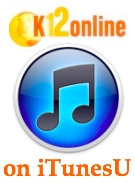

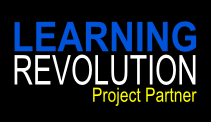
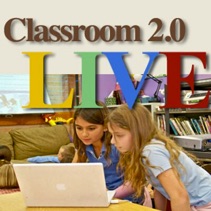
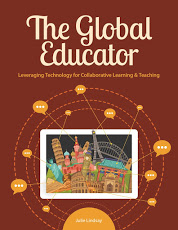
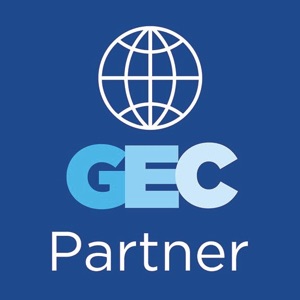
Pingback: 2010 K-12 Online Conference Call for Proposals #k12online10 « Moving at the Speed of Creativity
Do you have a couple of wrong dates on here? “The deadline for proposal submission is August 13, 2009.” and in the requirements section “…are due Monday, November 23, Week 2 presentations are due Monday, November 30.” Thanks!
Christine: Thanks for that catch, I removed that November date reference. That was a typo. Presos are due two weeks before the week they “go live” in the conference.
Typo in your intro paragraph: K-12 Online 2010 is scheduled for October 18-22 and October 25-29 of 2009,
you mean of 2010
Cheers, Fred
Thanks Fred! Date typo fixed!
Pingback: K12 Online Conference Call for Proposals « No Time to Sleep
Pingback: Langwitches Blog » K12 Online Conference 2010 accepting Proposals
Pingback: Goodreader: A great way to read PDF eBooks (like David Warlick’s latest) on an iPad « Moving at the Speed of Creativity
Pingback: K12 Online Conference 2010 | 2010 K-12 Online Conference Proposal Deadline Extended to August 23rd
Pingback: K12Online: Call for Proposals – Extended Deadline « Kim's Ventures in Educational Technology
I’m late in submitting a proposal to present at the K-12 conference, but if you still have time to review submissions, you’ll see a new one.
Looking forward to a rich variety of presentations…